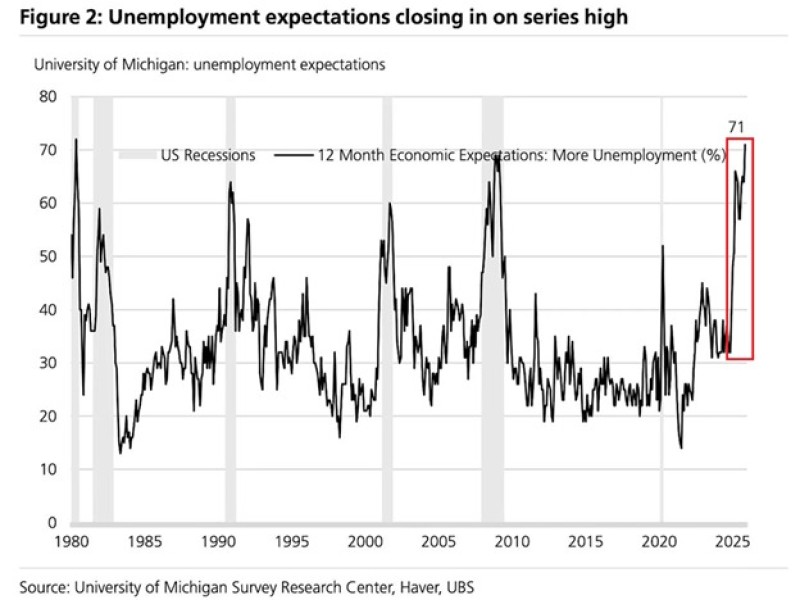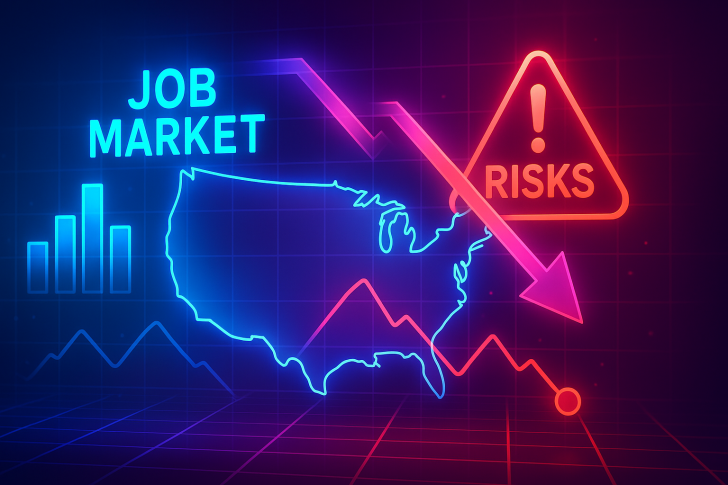⬤ A sharp and unusual spike in job market pessimism is sweeping across the United States, according to new University of Michigan survey data. The numbers are striking: 71% of U.S. consumers now expect unemployment to increase over the next 12 months—the highest reading since the 1980s. This kind of extreme pessimism has historically only appeared during recessions.

⬤ The timing couldn't be worse. Policymakers are discussing potential tax adjustments to shore up long-term fiscal stability, including possible increases to corporate or payroll taxes. Industries are already warning that higher taxes during a period of rising job insecurity could push employers toward layoffs, hiring freezes, or even relocating to lower-cost environments.
⬤ Unemployment expectations have doubled in less than a year and now exceed levels seen during the 2008 financial crisis. Consumers' perceived probability of losing their own job has climbed to 23%—the second-highest reading in at least 15 years. The data shows that this level of pessimism has never been recorded outside of a recession, highlighting just how sharply household confidence has collapsed.
⬤ For investors, these labor market signals are crucial. Rising unemployment fears typically lead to weaker consumer spending, tighter financial conditions, and lower corporate confidence. With expectations near multi-decade highs and tax policy adding more uncertainty, the U.S. economy looks increasingly vulnerable unless sentiment turns around. This combination of fear and policy risk marks a critical inflection point that markets will be watching closely.
 Artem Voloskovets
Artem Voloskovets

 Artem Voloskovets
Artem Voloskovets


